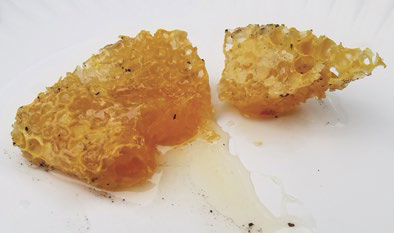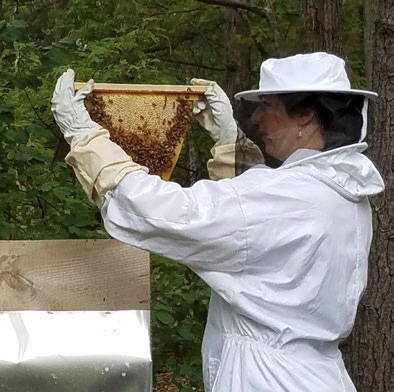WHEN SHE’S NOT FIXING SMILES, DR. JEAN RESNEVIC HAS ONE HONEY OF A SIDE INTEREST: TENDING TO HER BACKYARD COLONY OF BEES.
DURING THE WORKWEEK, Dr. Jean Resnevic oversees an all-female staff at Dr. Jean Resnevic Dental Care, her year-old practice in Greenville, Rhode Island. Downtime, however, finds her in charge of another helpful team: the 15,000 to 50,000 honeybees (depending on the season) she keeps in her home garden.

They’re also admirably industrious. “Bees plan ahead and work during times of plenty to save for times of famine,” says Dr. Resnevic, a graduate of Temple University School of Dentistry. They’re important for the environment and humans’ nutrition security as well; Dr. Resnevic notes that an estimated 50 to 80 percent of the world’s food supply is affected by bees’ pollination.

Tending to patients’ teeth is of course Dr. Resnevic’s primary passion and professional interest. But when the white lab coat comes off, this dentist-turned-apiarist puts on a white coat of a different kind — along with a zip-on veil and elastic ties to secure the spaces around her waist and wrists. Then she plunges right in. “There’s a certain adrenaline you get with beekeeping. You open the hive, and the bees are all over your face, on your mask, on your head, on your clothes. You feel like you’re so close to danger,” she says, “but you kind of find peace within it.”
“Honeybees don’t want to sting you unless you’re attacking their hive or their honey, because they’ll die when they do. For the most part, they’re safe to have around.”



